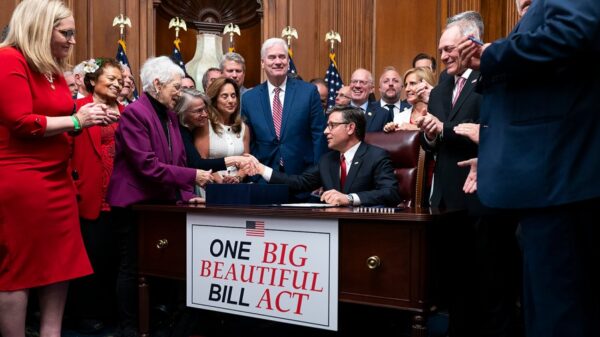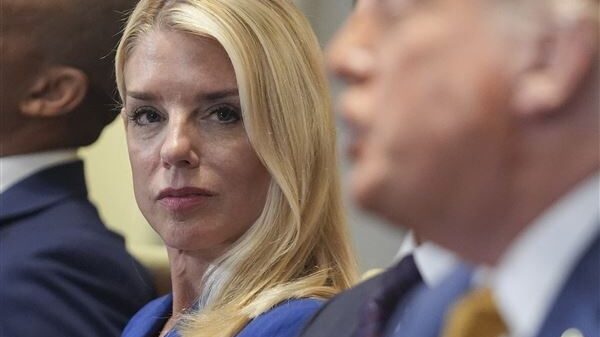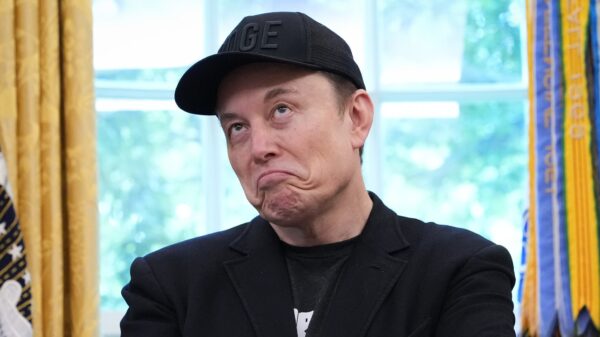Senate Minority Leader Chuck Schumer has threatened to withhold Democratic votes, potentially leading to a government shutdown. This latest maneuver comes just four months after a similar situation ignited internal strife within the Democratic Party, raising concerns about the repercussions of another breakdown in negotiations. As Schumer attempts to block Republicans from passing a $9.4 billion package of budget cuts proposed by former President Donald Trump, GOP senators view his threat as a bluff.
Republican Senator John Curtis from Utah expressed skepticism regarding Schumer’s intentions. “I don’t take it serious,” he stated in an interview with the Washington Examiner. Curtis emphasized that a “Schumer shutdown” would be easily branded, and he doubts Schumer would want to assume that label. The dynamic hints at a potential repeat of past conflicts, with Republicans anticipating that Schumer may ultimately back down.
Democrats find themselves with limited options as the minority party, relying primarily on the 60-vote filibuster. However, the White House’s rescissions bill, which Senate Republicans aim to amend and pass next week, requires only a simple majority. Democrats argue that Republicans are instigating a funding dispute by attempting to retract funds Congress has already allocated for foreign aid and public broadcasting.
“It’s fundamentally changing the way the government is supposed to function,” remarked Senator Mark Kelly (D-AZ), who is known for his bipartisan efforts. “How do we do our jobs when the president’s just going to undo our work? That’s not right.”
Pressure mounts on Schumer to demonstrate to his frustrated base that Democrats are actively opposing Trump, particularly after conceding in the previous shutdown incident. Schumer criticized the notion that Democrats should support government funding while Republicans attempt to overturn a bipartisan agreement. “It’s absurd to expect Democrats to play along with funding the government if Republicans are just going to renegotiate agreements without the customary 60 votes required,” he stated during remarks on the Senate floor.
In March, Schumer and nine other Democrats voted with Republicans to fund the government, fearing a prolonged shutdown. This decision sparked a backlash within the party, leading to calls for Schumer’s resignation as leader and urging for a more progressive challenger in the upcoming 2028 primary. Yet, while many Democrats endorse Schumer’s current strategy, some express discomfort with employing tactics he previously condemned.
“I refuse to ever vote for anything that would shut the government down,” said Senator John Fetterman (D-PA), reaffirming the party’s core responsibility to keep the government functioning.
As tensions escalate, Congress faces a looming deadline of October 1, 2023, to either pass the annual budget or enact a funding measure to prevent a shutdown. Susan Collins, the Senate Appropriations Committee Chairwoman and a centrist from Maine, downplayed Schumer’s rhetoric. She noted, “Sen. Schumer has never been a strong supporter of the appropriations process,” referencing his choice to advance large bills rather than individual appropriations during his tenure as majority leader.
When asked whether she could continue to effectively craft the budget amid rising tensions, Collins pointed to her committee’s recent progress. Hours prior, the committee advanced two segments of funding for the twelve-bill budget, unanimously passing the Agriculture, Rural Development, Food and Drug Administration appropriations bill and the Legislative Branch appropriations bill with a 26-1 vote.
However, negotiations over the Commerce, Justice, Science, and Related Agencies appropriations bill reached an impasse due to a longstanding dispute regarding the relocation of the FBI headquarters. Lawmakers committed to revisiting the subject in the future, emphasizing the complexities of the current funding landscape as the October deadline approaches.





























































